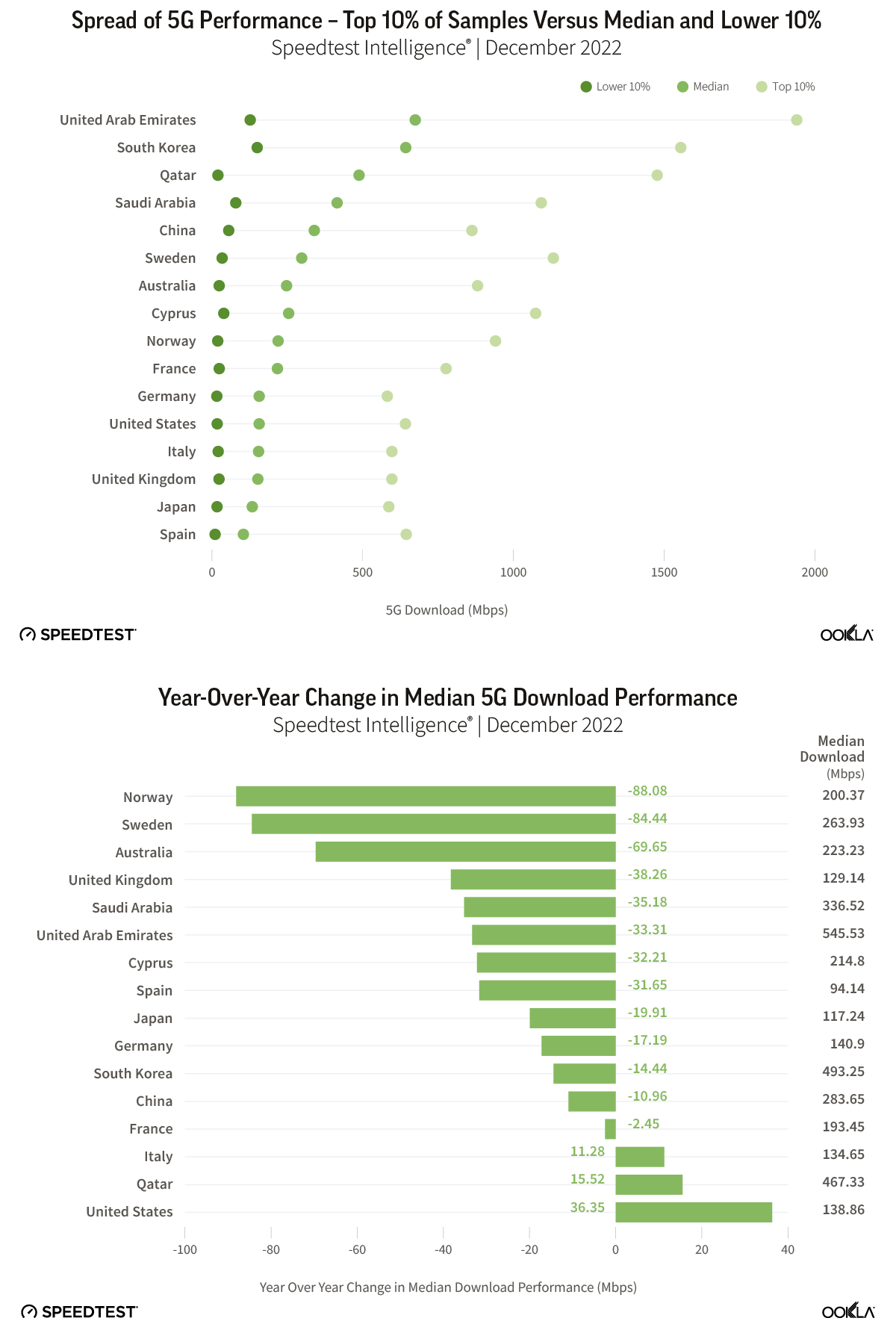5G
Ookla warns of declining UK 5G mobile broadband speeds
Ookla, which operates the popular internet Speedtest.net service, has warned that median 5G performance (mobile broadband download speeds) are declining in many early launch markets like the United Kingdom, where speeds fell by -38.26Mbps (Megabits per second) year-on-year.
The fact that download speeds have fallen in many of the countries that were first to adopt 5G networks won’t come as too much of a surprise to those keeping close tabs on last year’s various speeds reports (example). But it’s particularly worrying for countries like the United Kingdom, which already had some of the lowest 5G speeds of the early adopter countries.

In terms of the UK, Ookla noted that our average (median) download speeds hit 129.14Mbps in December 2022, which is down sharply by -38.26Mbps from the year before. But there can be many different reasons for changes like this, which will vary between countries and operators. Not to mention that the UK has had its own particular set of challenges.
Firstly, there’s the fact that early adopters sometimes pay a price because the network kit they deploy isn’t as advanced as what late adopters may be able to harness. For example, the UK was late to the party with 4G, but we did quite well with speeds due, in part, to the greater maturity of the network being deployed. But with 5G it’s been the other way around.
The UK government’s decision to ban network kit from Huawei over security concerns, which came just as the initial 5G rollout was getting into its stride (i.e. diverting resources to a wide scale rip-out-and-replace programme), will have also had an impact. As too will the fact that rising adoption of 5G services will inevitably place more demand on network capacity which, if not adequately managed, can lead to congestion.
On top of that, there’s the fact that some regulators have been slow to release new radio spectrum frequency to fully harness 5G (more spectrum tends to improve performance and coverage). Some of the fastest countries above have deployed a lot of higher frequency mmWave bands too, but Ofcom is still playing catch-up. In fairness, mmW requires costly network densification and does little to improve coverage, so demand for it is usually muted.
In theory, the deployment of future Standalone 5G (SA) networks could help to turn this performance slide around, but going from a 4G/5G hybrid network to a 5G end-to-end setup is a costly and complex challenge that will not be a quick process. ISPreview













You must be logged in to post a comment Login